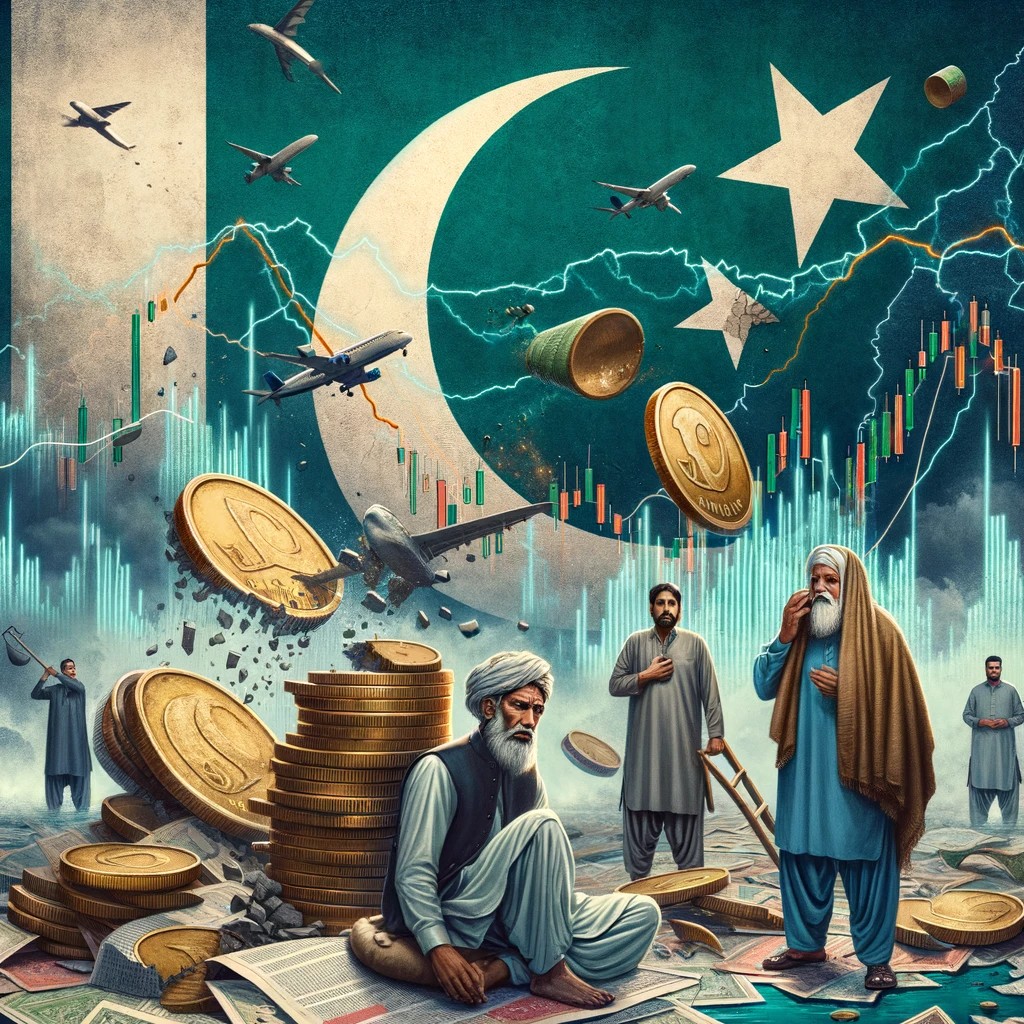Amidst a backdrop of political turbulence and mounting security concerns, Pakistan stands at the precipice of a deepening economic crisis, one that brooks no further delay in the search for a resolution. The urgency of the situation is palpable, with a looming election set to play a critical role in determining the nation’s future. Bilawal Bhutto Zardari, scion of a prominent political lineage and chairman of the Pakistan People’s Party, emphasizes the gravity of this multifaceted crisis, encompassing soaring unemployment, rampant poverty, and inflation reaching unprecedented levels.
The Political Chessboard and Economic Turbulence
Zardari’s call for swift elections echoes the desperation for a stable government capable of confronting these monumental challenges. The situation is exacerbated by a severe economic downturn and escalating terrorist attacks, painting a grim picture of a nation in distress. The recent cross-border skirmishes with Iran over separatist groups only add fuel to the fire.
Economically, Pakistan’s situation is precarious, with foreign reserves plummeting to a critical low, barely covering a month’s worth of imports and leading to shortages of essential goods. The stopgap solution, a $3bn IMF emergency funding program, is but a temporary salve, with the looming end of this scheme in April raising alarms about the need for a more sustainable financial lifeline.
This economic freefall has set the stage for the upcoming elections, now rescheduled for February 8 after a delay from November. The postponement, initially to facilitate redistricting, now seems ominously prescient in the face of increasing terror attacks and adverse weather.
Moreover, the political landscape is marred by controversy, with the notable absence of Imran Khan, the ousted former prime minister currently imprisoned on corruption charges, which he vehemently denies. Despite his disqualification from office, Khan’s Pakistan Tehreek-e-Insaf party remains a formidable force, evident from his unwavering popularity among Pakistanis disillusioned by the economic downturn.
A Mosaic of Challenges and the Road Ahead
As the country teeters on the brink of chaos, its leadership is faced with a labyrinth of challenges. The economic predicament, characterized by staggering inflation and harsh austerity measures, is just the tip of the iceberg. Pakistan’s reliance on short-term IMF loans, while a necessary evil, is not a panacea for its deep-rooted economic woes. The country’s history with the IMF, marked by 23 agreements, reflects a pattern of fiscal volatility and unfulfilled reforms. The current $3bn rescue package, although a momentary relief, underscores the urgency for more profound and sustainable economic strategies.
The political arena is no less tumultuous. The upcoming elections, amidst the backdrop of economic despair and political uncertainty, are a litmus test for Pakistan’s democratic resilience. The exclusion of Khan’s PTI from using its symbolic cricket bat as a party emblem is a testament to the complexities of the country’s electoral process. This move, alongside the crackdown on PTI members and supporters, adds a layer of controversy to an already fraught election.
In the face of these overwhelming challenges, the need for decisive action is undeniable. As Zardari suggests, difficult decisions await the incoming government, necessitating a delicate balance between adhering to IMF mandates and addressing the immediate needs of a beleaguered population. The specter of further austerity measures looms large, threatening to exacerbate the hardships of a populace already reeling under the weight of economic instability.
As Pakistan navigates this precarious juncture, the path forward is fraught with uncertainty. The interplay of political dynamics, economic instability, and security concerns creates a complex tapestry that demands a nuanced and multifaceted response. The stakes are high, and the decisions made in the coming months will have far-reaching implications not only for Pakistan but for the region as a whole.





